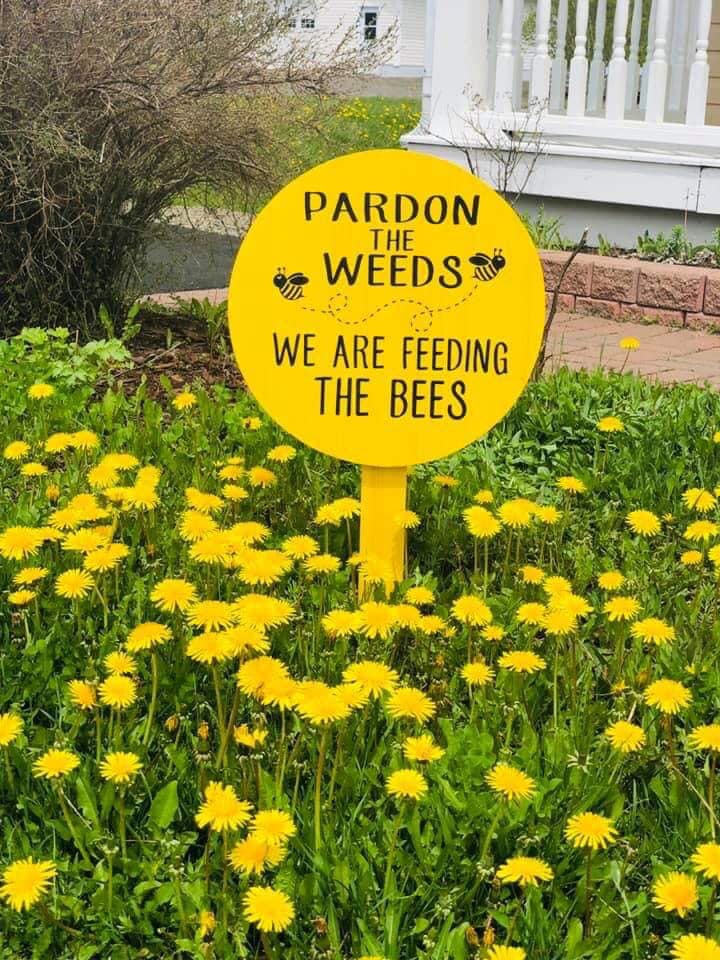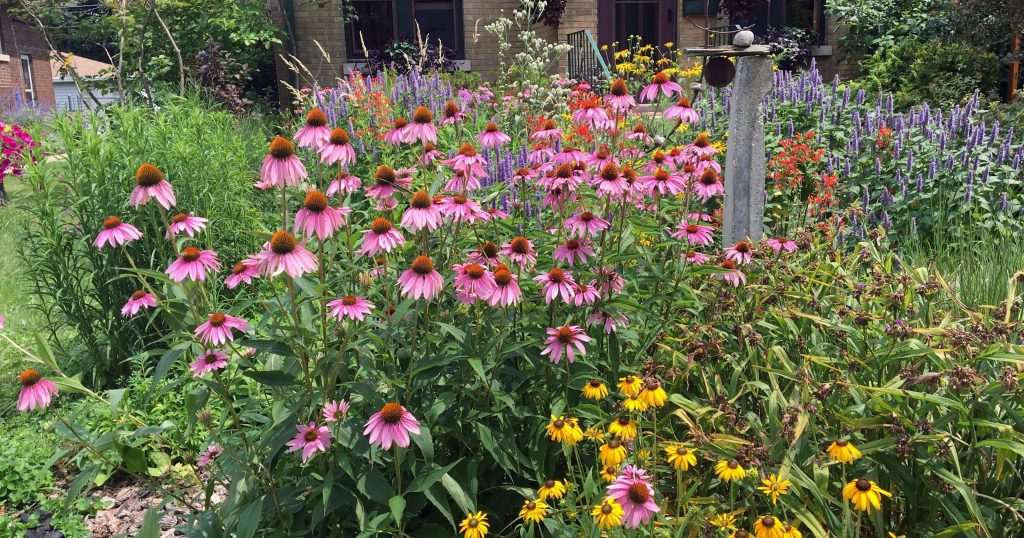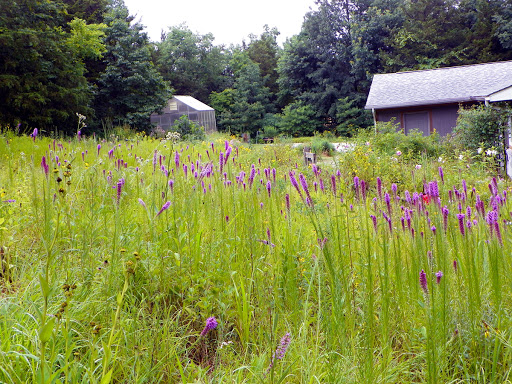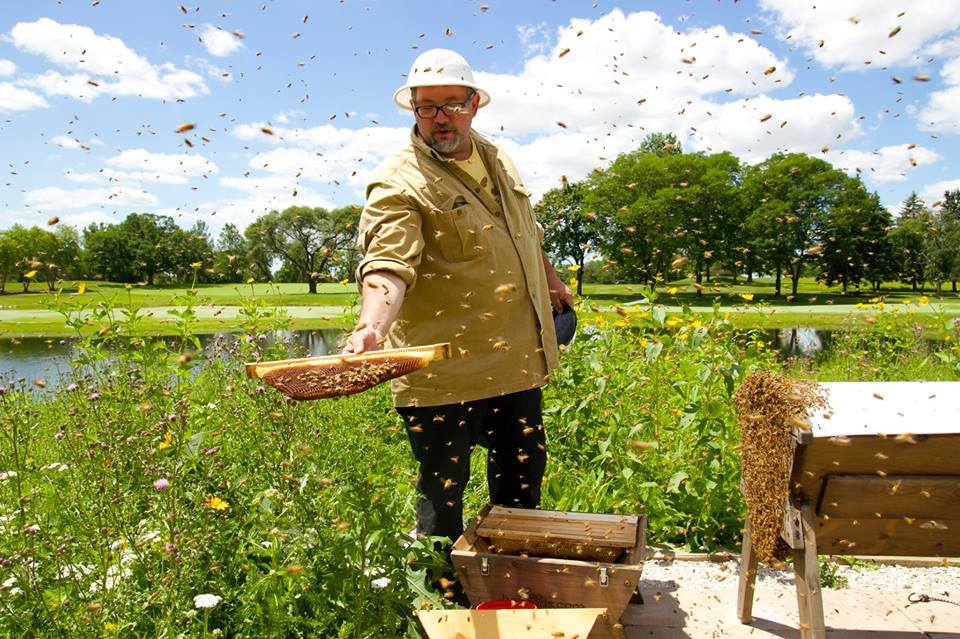
Written by Hippo (a hippopotamus) and Al (a bird), but mostly by Al
“Hippo!” said Al as he landed upon my head. “I’ve met someone!”
“Yeah?” I said, thoughts of a love story filling my head.
“I met Charlie Koenen, the beevangelist, on a rooftop! He spreads the gospel of the bees in and around the City of Milwaukee. You’ll never guess what he told me.”
“Then you’d better tell me,” I said, not a little disappointed that a love story was not to be.
“Guess how much honey a worker bee makes in her lifetime.”
“Two pounds,” I guessed.
“No. Guess again.”
“For Pete’s sake, Al, I am not in the mood for this. Just tell me!”
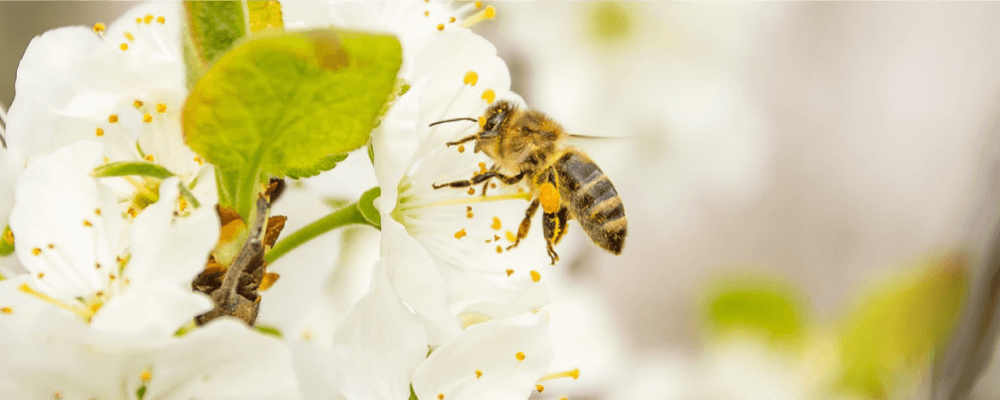
Honey bee 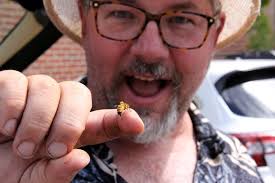
Charlie and Honey bee 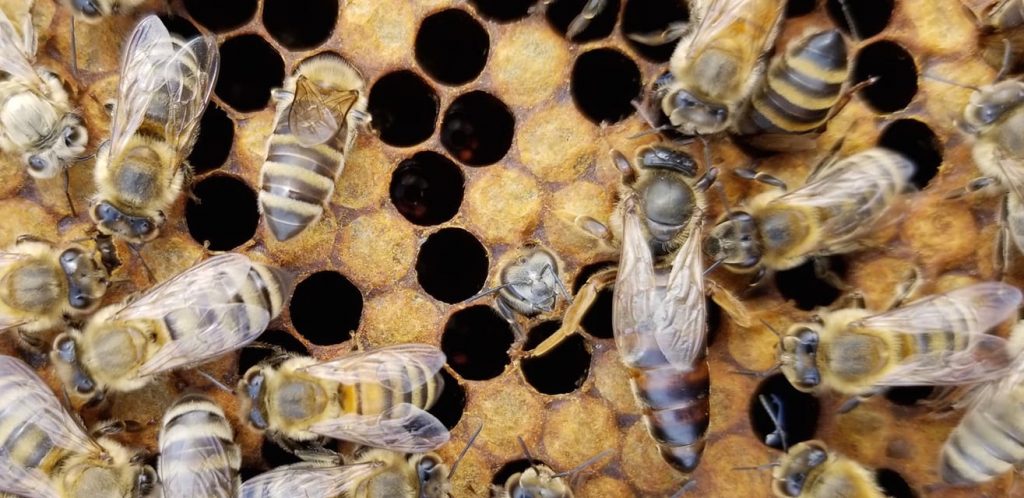
Honey bees
“One drop!” said Al. “Each worker bee makes just one drop! Yet, one drop at a time, the hive makes hundreds of pounds of honey. Does this remind you of anything, Hippo?”
“Of course, Al! The hummingbird! . . . and potluck dinners. Everybody pitches in what they can and it all adds up to something great. We’re asking every human to add their drop of ‘honey’ to create a great, new food system that is healthy for all Earthlings.
“I met Charlie, also known as CharBEE on the rooftop of Redeemer Lutheran Church. There are two hives there as part of a program called Bee the Change.
“Bee the Change is a collaboration between Noon Run, the Zeidler Center for Public Discussion, Redeemer Lutheran Church, and BeeVanglists (that’s Charlie’s organization). Noon Run is a six-days-a-week free community lunch program located in the Redeemer Lutheran Church, started by students of Marquette University to help nourish hungry humans, both physically and spiritually. As part of Bee the Change, Charlie teaches beekeeping to the Noon Run guests and other community members, encouraging them to become Beevanglists. Ed Qualms, formerly homeless, now teaches “beeing” to others. Watch him in action here: https://www.youtube.com/watch?v=-cfgnHdQsjU
We spread the buzz about the importance of the bees and our need to support them. We teach about the bees while tending to the hives, bringing traditions and history like pollen and nectar to visitors and guests.
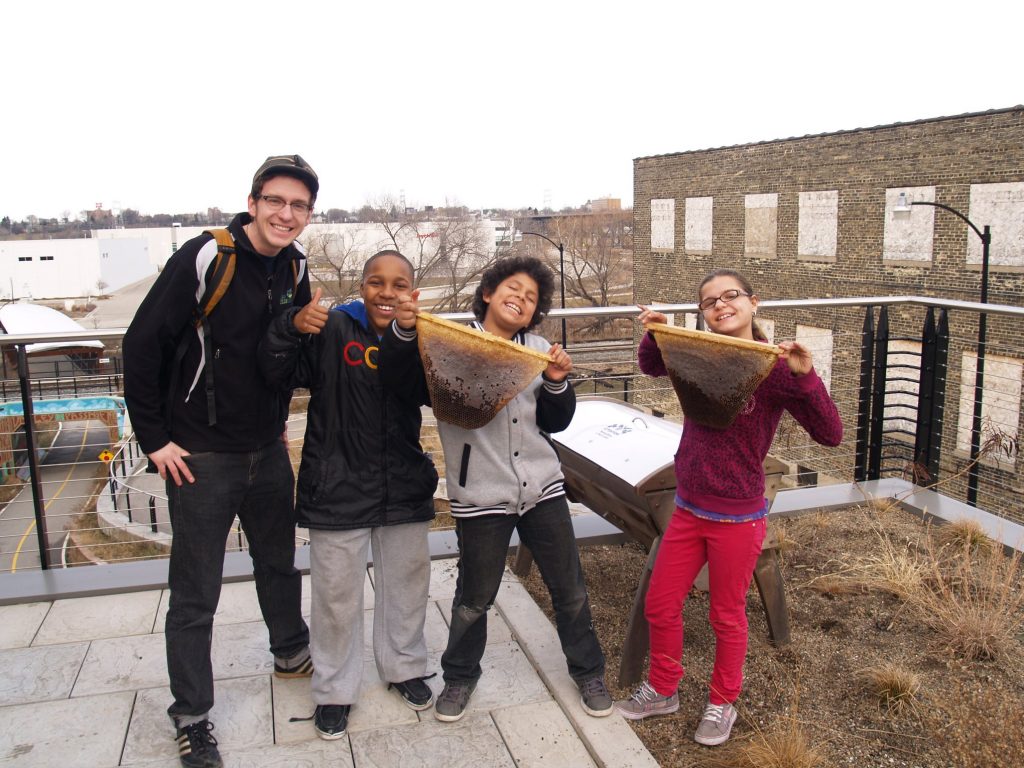
Happiness is beeing with the bees 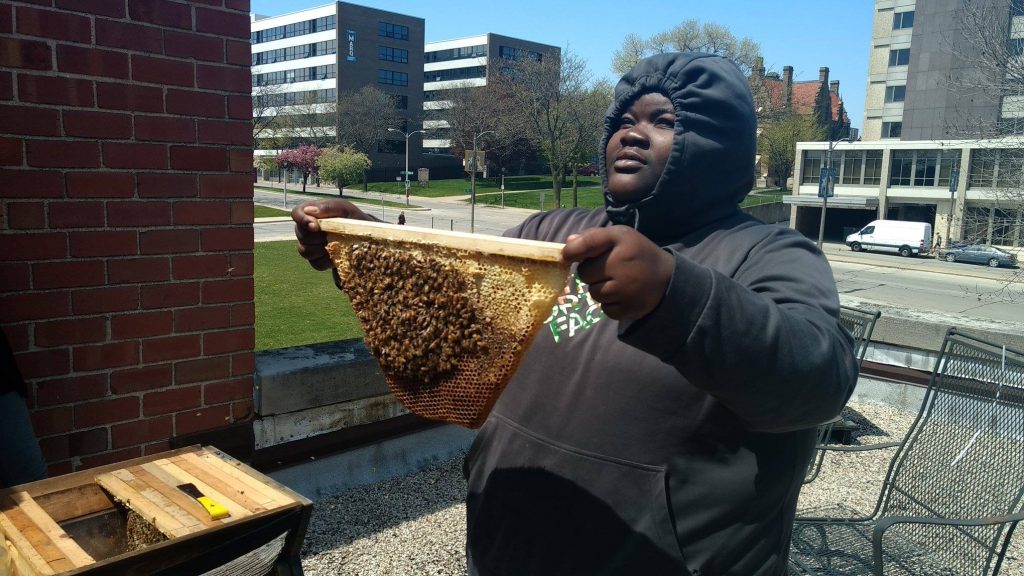
Praying that she won’t get stung 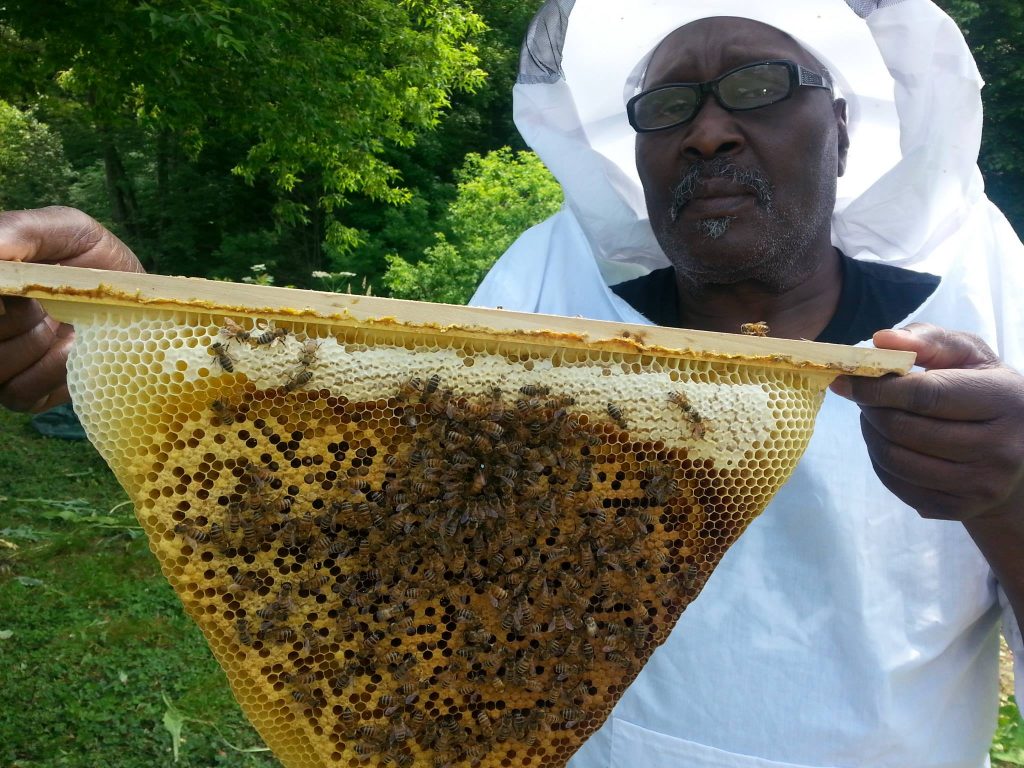
More bees!
“And there’s more, said Al. Charlie and the BeeVangelists help set up bee hives all over the city. The Sisters of St. Frances have an apple orchard, but it was not producing. Charlie helped set up hives. In two years, there were so many apples that the branches had to be braced.
“The BeeVangelists are spreading the good news of the bees from rooftops and backyards, in schools and retirement homes, with candle dippings and honey spinnings, tastings, parades, and festivals. Three students from Tamarack Waldorf School, working with bees at Wellspring Farm, received an award to buy a bee hive for their school. St. John’s on the Lake, a retirement home, has two bee hives. Interaction with the bees is changing the way the residents there think about food and their relationship with the Earth. Thousands of bees live in hives on the roof of the engineering building of Marquette University as part of their sustainability initiatives.
“Bryan Bergner, former superintendent at Westmoor Country Club in Brookfield, Wisconsin, met Charlie at a rooftop dinner. A beehive sat within 10 feet of all the people. ‘No one was getting stung and all of it seemed really cool,’ said Bergner. ‘Charlie just happened to be there that night and we started talking.’ They set up some hives on the golf course and started managing the grounds differently to accommodate the needs of bees. ‘. . . the first thing I learned,’ said Bergner, ‘is that bees are pollinating much more widely than I had first thought: within a 2 to 2.5-mile radius. They’ll go as far as 9 miles out. So we’re benefiting a huge area with our pollination capability. All our neighbors benefit too, and we can promote that, because we are a golf course in the community — and all superintendents understand that we’re under the microscope for our chemical and water use.’”
“BeeVangelism is beekeeping for the bees – putting the well-beeing of the bees first,” said Al. “And the bees give so much abundance in return – honey and wax, of course, but so much more. Just think about how the bees helped the apple trees make more apples. They do the same thing for mangos, kiwi, plums, peaches, pears, nectarines, pomegranates, currants, alfalfa . . . Over eighty percent of plants require cross-pollination, but bees and other pollinators are in trouble. Both their numbers and species are declining.”
“I read that in some places in China, the lack of pollinators means that humans pollinate fruit trees by hand using a brush to collect pollen from one flower and put it on another,” I added.
“That’s the dumbest thing I’ve ever heard!” exclaimed Al. “Mother Nature spent millions of years creating, diversifying, and self-organizing so that everything works together. There are over 16,000 species of bees alone, not to mention butterflies, beetles, moths, wasps, ants, birds, and bats. They are all uniquely suited to their own niche, having co-evolved with specific flowering plants in a miraculous life-giving system. Humans are not meant to be pollinators!”
“What if they get so busy pollinating and doing other jobs not intended for them that they don’t have time to write stories?” I worried. “They really should stick to what they’re good at and they are very good at stories.”
“Back to the topic, Hippo. Charlie says the bees are having trouble because of a thousand different cuts, but mostly because of industrial agriculture with its pesticides, herbicides, and mono-culture crops that steal habitat and diversity,” said Al.
“That means you and I can help,” I said. “We can let humans know about this issue and what they can do about it.”
What Can You Do?
“Go to Beevangelists.org where you will find bee-related information, events, activities, and products, said Al. “You can also link to their Facebook, Twitter, Instagram, and LinkedIn through the website.
“Buy honey, pollen and wax from local beekeepers. “Meuer Farm, who we wrote about last month, sells their own honey at the Milwaukee Winter Farmers Market,” said Al. “And I saw another vendor selling bee products there, too. I think it was Viola’s Honey.”
“How can people know if it’s local?” I asked.
“‘Know your farmer. Know your food. Know your beekeeper. Know your honey.’ That’s what Charlie says,” explained Al.
“That’s good advice,” I agreed.
“Charlie’s a pretty smart human,” said Al. “He learns from the bees.
“There’s more,” said Al. “Let the dandelions and clover grow in your yards. The clover restores nitrogen so you don’t need petroleum-based fertilizer and the dandelions and clover provide food for the pollinators.
“I am inserting another paragraph here as a result of outrage over this idea from some readers. Hippo and I are suggesting beauty that works with nature. We are suggesting landscaping with native plants. We are suggesting a book called Mending the Earth in Milwaukee, written and published by Ney Tait Fraser. It is about some remarkable women on the Milwaukee North Shore who transformed their yards from monocrops of grass into beautiful spaces for wildlife and humans alike.
“Since there are so many different species of bees (and other pollinators), it’s the polite thing to make sure that you have food for them all. In Wisconsin, plant native varieties like purple cone flowers, and lavender hyssop, black-eyed Susans and lupine, great blue lobelia and butterfly weed. And don’t worry about too many bees in your yard. Most wild bees do not live in hives. Many are solitary, and since they have no hive to protect, they won’t sting! Birds and butterflies will love you, too.
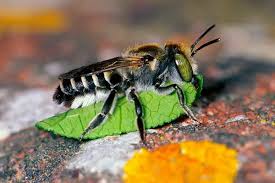
Lef-cutter bee 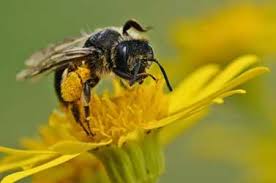
Mason bee 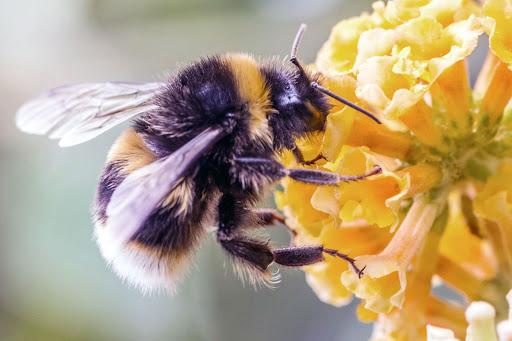
Bumble bee 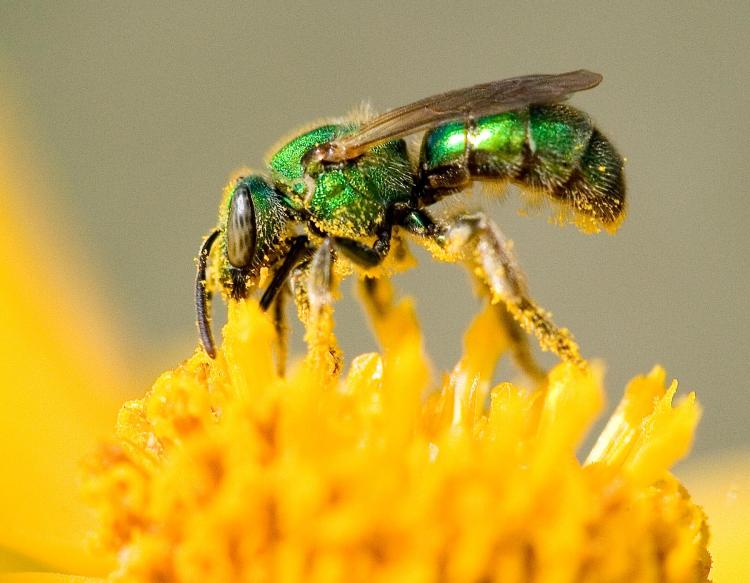
Sweat bee 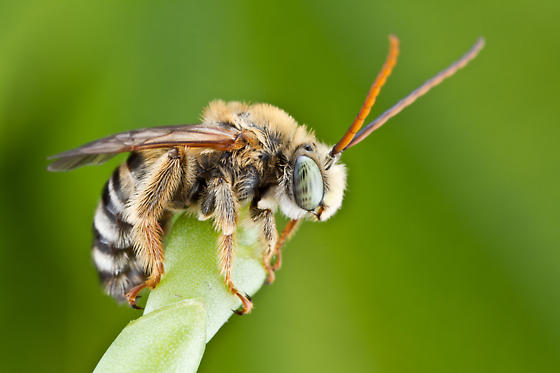
Long-horned bee
“Ask your state’s department of transportation to plant pollinator-friendly native plants along the roadways to provide a bee-u-tiful (Sorry, I couldn’t help myself) corridor for bees, butterflies, and birds. And ask them to leave the ground open, as much as possible, so that ground-nesters have a home, too.”
“You can also help by going to our home page and adding your name to those standing with Hippo and Al,” I said.
“This may seem silly, but as we learned about the bees, Al insisted that we learn the Beetles song, ‘Let it Bee Be.’ We would sing it for you now, but unfortunately, we don’t have the necessary recording equipment.”

